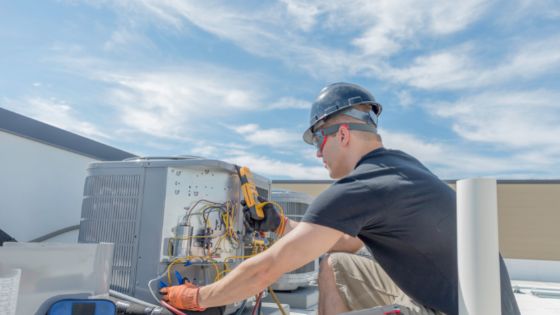It’s probably not news to you that, while the plumbing fixtures, cabinets, countertops, and floor coverings are typically the first considerations when purchasing a new home, the heating and cooling system are often the features with which most people are dissatisfied after living in the home for a while.
It would be best to learn a few easy things about your system regardless of the season to prevent these frequent malfunctions and understand how to keep your system functioning smoothly.
Not only does knowing these five things help you understand your system better and save you time when you need a local HVAC provider for servicing, maintenance, or installation.
1. Determine whether more air purification is required.
Adding air scrubbers, UV lights, and electrostatic media filters may increase comfort and tranquillity. Many overlook that cleaner air can improve your health and keep your HVAC system running more efficiently.
Cleaner air might be very beneficial if anybody in your household suffers from asthma or allergies. Mold issues caused by water leaks may be eliminated by installing an air filtration system, along with viruses and other airborne pollutants. Additionally, it keeps your HVAC system and ducts clean.
Suppose you’re interested in installing UV lamps, electrostatic media filters, or a whole-home air purification system to enhance your home’s indoor air quality. HVAC specialists should be able to provide you with several budget-friendly solutions that help you prepare your HVAC unit for the winter. Also, make sure to inquire about any needed maintenance.
2. Future System Maintenance and Installation
Now that you have a greater understanding of your system’s history, it is time to look forward. A well-maintained system may extend its longevity, so be careful to use a reputable Charleston HVAC firm.
Once done, you’ll also know who to call when you’re ready to replace your air conditioner or install a new furnace.
3. Clogged filters reduce airflow and efficiency significantly.
Unfortunately, air filters do not automatically clean themselves. Nonetheless, many (if not the majority) people rarely or never clean or replace their air filters. When they get soiled, your system must work harder to maintain the same comfort level. If your monthly energy bill is steadily increasing, your energy provider is unlikely to increase costs. Your HVAC system may require cleaning.
4. The Type of System and Operation Options
Now that you know your system’s brand, manufacturer, and model, you should be able to do a few simple HVAC-related Google searches to determine the mode of operation.
Due to the adaptable nature of these systems and their yearly improvement in operational efficiency, there are several varieties of HVAC systems in the wild.
5. System options include:
-
Conventional
- Conventional central air conditioning and furnace combos.
- High-efficiency.
- High-efficiency, variable-speed heat pumps (capable of cooling and heating your house).
- Ductless.
- Ductless mini-splits.
- Geothermal.
- Geothermal heating and cooling.
The benefit of understanding these system kinds is that it enables you to determine which options are accessible for your next system installation.
-
Individual
Individual or decentralized systems supply energy by utilizing a variety of individual units located within a structure.
Self-contained unit packages include rooftop HVAC, room air conditioning, and air-to-air warmers.
Individual units are advantageous since they are simple to manage and require fewer initial expenditures. However, in large structures, individual systems may become a nightmare to maintain if they are dispersed across the complex. It is essential to consolidate systems prone to failure or leakage and are costly to replace while distributing fans and terminal devices.
As Bonus!
Brand, Make, and Model:
The brand name, manufacturer, and model of your system can help you determine its mode of operation.
Not all brands are created equal, so knowing the manufacturer will help you determine if you like the quality of that company’s product or if you should consider other brands for your next system purchase.
Adjust the dampers inside the ducting. The diffuser grille is the worst and noisiest area to alter the quantity of heating and cooling entering a space. Balance dampers must be fitted at a distance from diffusers and balanced by a certified technician using the appropriate equipment.
You probably already knew that a too-hot or too-cold bedroom might make it difficult to fall asleep. The underlying science is incredibly fascinating. Temperature is one of the most crucial aspects of attaining a restful night’s sleep. The relationship between a good night’s sleep and your body’s internal temperature fluctuations throughout the day and night is significant. Before going to bed, your body’s temperature will begin to decrease and will continue to do so until about sunrise. If the temperature is too hot or too cold, this temperature decreases before sleep might be interrupted, resulting in more difficulty falling asleep and perhaps a worse sleep quality.













